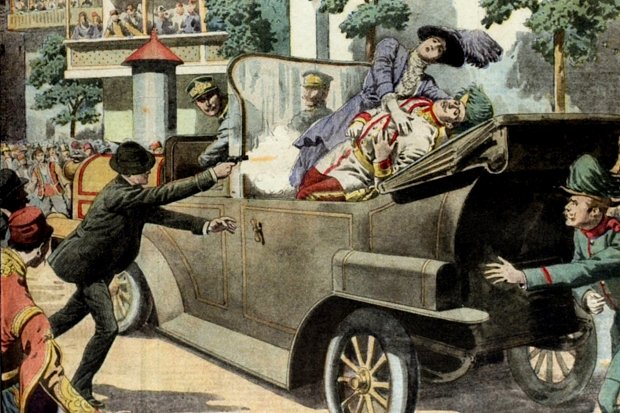The question of what exactly caused World War I has been widely speculated and is possibly the most contemplated question in history. Historians have identified the four main causes of World War One. They were nationalism, imperialism, militarism, and the intricate web of alliances that are acknowledged to have led to the outbreak of the war.

World War I lasted from 1914 to 1918, involving the major powers of Europe and the rest of the world. The war profoundly affected the social, economic, and political landscape of the world. It led to the death of millions of people all over the world.
The M-A-I-N acronym, which stands for militarism, alliances, imperialism, and nationalism, is often used to examine the factors contributing to the war. Each of these is considered one of the primary causes of World War One. Even though it is quite simple, it offers a valuable structure for analysis.
We will explore each of the four causes and try to understand how they contributed to the onset of the First World War in this article.
Militarism
During the late nineteenth century, there was significant military competition among the major European powers. The focus was on building a more robust military compared to neighbors, which led to a culture of paranoia and the pursuit of alliances.
At that time, war was considered to be beneficial for nations. Germany had an ambitious plan to expand its navy but could not surpass the British who always maintained naval superiority. The British obsession with naval dominance was evident in government rhetoric, which overemphasized military expansionism.
Unfortunately, several governments failed to check their aggression due to a simple naivety regarding the potential scale and bloodshed of a European war.
Alliances
Between 1870 and 1914, a network of alliances was established in Europe, which effectively created two factions that were obligated to uphold their sovereignty and engage in military intervention – the Triple Entente and the Triple Alliance.
The Triple Alliance was formed in 1882 and connected Germany, Italy, and Austria-Hungary. The Triple Entente came about in 1907 and joined France, Britain, and Russia. Austria-Hungary and Russia had conflicting Balkan interests which have historically been a point of contention, and France held a deep distrust of Germany due to their loss in the 1870 war.
The alliance system was primarily created because Germany, led by Bismarck after 1870, utilized its neighbors’ imperial ambitions against each other as a means of maintaining a balance of power within Europe.
Imperialism
The competition among Empires motivated nations to form alliances. Colonies provided a commodity that could be traded without majorly impacting the home country. As a result, they caused nations, which might not have otherwise interacted, to engage in conflict and negotiations.
Russo-Japanese War of 1905, for instance, was fought over ambitions in China and played a role in the formation of the Triple Entente. There is a suggestion that Germany invaded Belgium and France due to imperial ambitions.
The expansion of the British and French empires triggered resentment in Germany, and there was a brief imperial policy pursued during the late nineteenth century. However, there is no support for the claim that Germany aimed to establish a European empire in 1914, according to pre-war rhetoric and strategy.
Nationalism
Europe witnessed a surge in Nationalism, which emerged as a significant cause of tension. Nationalism was interlinked with militarism and often collided with the interests of imperial powers in Europe, thereby creating new areas of contestation.
Additionally, Russia had a longstanding interest in the Balkans due to Nationalism, particularly in Serbia, which eventually led to the assassination of Archduke Franz Ferdinand, the heir to the Austro-Hungarian throne.
The Habsburg Empire faced challenges in maintaining its imperial cohesion as it consisted of 11 distinct nationalities, including large Slavic populations in Galicia and the Balkans who nurtured their nationalist aspirations.
The Catalyst: Assassination of Archduke Franz Ferdinand
Archduke Franz Ferdinand and his wife were murdered by Gavrilo Princip, a member of the ‘Black Hand Gang’, a Bosnian Serbian nationalist terrorist organization.
The killing of the Archduke, which was perceived as a result of the official Serbian stance, gave rise to the July Crisis, a period of incorrect estimations on both diplomatic and government fronts leading to a sequence of declarations of war.
Conclusion
The First World War broke out due to a combination of factors that escalated tensions between countries and ultimately led to one of the most deadly wars ever seen in human history.
The four main causes of the war were nationalism, imperialism, militarism, and military alliances. Each of these contributed to the conflict in its own way, but combined, they created a powder keg that exploded in 1914.
While it is impossible to change the past, we can try to understand the causes of such disastrous events to prevent similar situations in the future.
